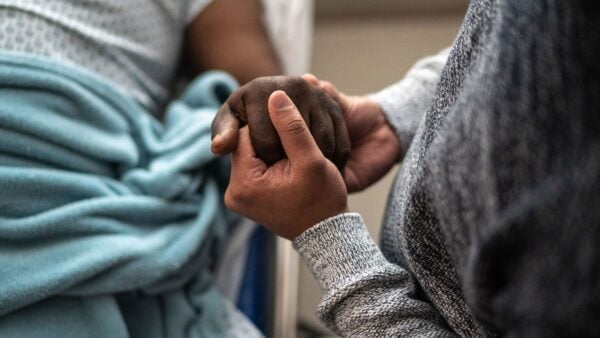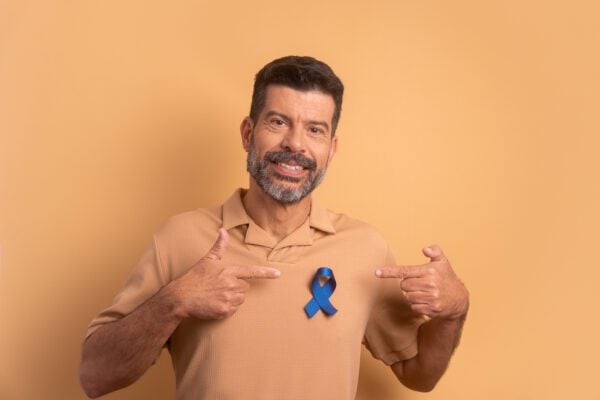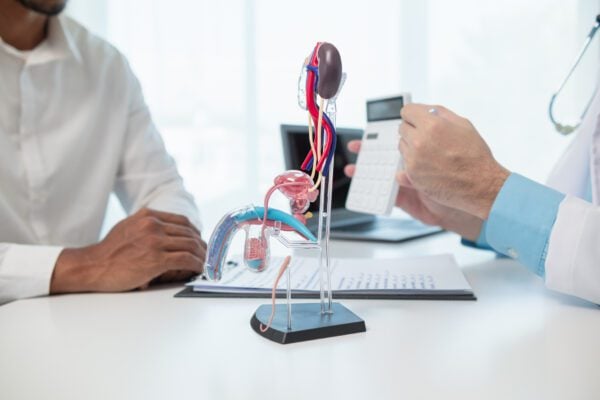Prostate and colorectal cancers are two of the most common cancers affecting men in the U.S., and Black men face significantly higher risks of both diagnosis and death.
According to the American Cancer Society, Black men are about 70% more likely to be diagnosed with prostate cancer than white men and twice as likely to die from it. Prostate cancer is also the most diagnosed cancer in Black men.

Similarly, Black men have the highest rates of colorectal cancer incidence and mortality among all racial groups. Data from the Centers for Disease Control and Prevention (CDC) shows that Black Americans are about 20% more likely to get colorectal cancer and about 40% more likely to die from it than white Americans.
These disparities are linked to a combination of factors, including access to health care, income, insurance coverage, trust in medical providers and differences in how early symptoms are recognized or addressed. Black men are also less likely to undergo routine cancer screenings, which can lead to later-stage diagnoses and reduced chances of successful treatment.

Understanding the symptoms
Prostate cancer often does not present symptoms in its early stages. When symptoms do appear, they may include:
- Difficulty urinating
- Frequent urination, especially at night
- Blood in urine or semen
- Pain in the hips, back or pelvis
Colorectal cancer can also develop without symptoms early on. However, warning signs may include:
- Changes in bowel habits
- Blood in stool
- Unexplained weight loss
- Persistent abdominal discomfort or fatigue
Because early-stage cancers are often treatable, regular screenings are critical.

The U.S. Preventive Services Task Force recommends all men aged 55-69 years old discuss the potential benefits and harms of prostate cancer screening with their clinician to decide whether screening is right for them.
Local resources in Indianapolis
In neighborhoods like Martindale-Brightwood, access to affordable screenings and information can make a life-saving difference. Several community health centers and organizations offer support, including:
- Jane Pauley Community Health Center: Offers primary care services and referrals for screenings.
- Raphael Health Center: Provides preventative care and health education for underserved communities.
- IU Health Simon Cancer Center and Eskenazi Health: Offer cancer screening programs and community outreach.
- Little Red Door Cancer Agency: Provides free screening navigation, transportation and support services for residents who are uninsured or underinsured.
These organizations help bridge the gap by offering culturally competent care, education and resources to encourage early detection.

Take action
Prostate and colorectal cancers are highly treatable when caught early. The five-year survival rate for localized prostate cancer is nearly 100%, and for early-detected colorectal cancer, it’s around 90%, according to the American Cancer Society.
Awareness, timely screening and removing the stigma around men’s health conversations are crucial steps in reducing the burden of cancer in the Black community.
For more information or to find screening services near you, visit:
This reporting is made possible by a grant from the Indianapolis African-American Quality of Life Initiative, empowering our community with essential health insights. https://iaaqli.org/
Contact Health & Environmental Reporter Hanna Rauworth at 317-762-7854 or follow her on Instagram at @hanna.rauworth.
Hanna Rauworth is the Health & Environmental Reporter for the Indianapolis Recorder Newspaper, where she covers topics at the intersection of public health, environmental issues, and community impact. With a commitment to storytelling that informs and empowers, she strives to highlight the challenges and solutions shaping the well-being of Indianapolis residents.








